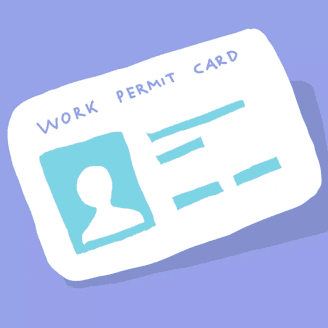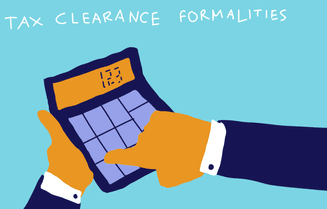- Osome Blog SG
- How To Cancel Your Work Permit in Singapore
How To Cancel Your Work Permit in Singapore
- Modified: 28 November 2024
- 7 min read
- Foreigner's Guide


Melissa Yeo
Business Writer
Melissa's unique storytelling expertise makes a difference for small business owners and entrepreneurs. Her background in content and social media spans eight years in various industries, including publishing, ecommerce and marketing. At Osome, she makes everything about running a business less intimidating. From specific accounting and bookkeeping advice to insights for company growth, Melissa's articles help you to take the next step on your entrepreneurship journey.

Jiaping Zhang
Reviewer
Jiaping, CA Singapore and SCTP member, is our Corporate Tax Manager based in Singapore with a decade of expeience on Singapore corporate tax. With in-depth knowledge about Singapore corporate tax law and regulations, she can help with corporate tax compliance that matters to every company.
In Singapore, Work Permit cancellation is an important process that foreign workers or Singapore expats have to go through. In a nutshell, you are required to cancel a Work Permit when you are no longer in your existing employment, or when the Work Permit expires. Once the Work Permit has been cancelled, you will have to cut the Work Permit in half, and discard it so that it will not be misused.
In this guide, we cover everything you need to know about Work Permit Cancellation in Singapore.
Who Can Cancel Your Work Permit?
You can either cancel your Work Permit by yourself, or through your employer. Alternatively, you can also seek help from an authorised visa agency.
The Work Permit cancellation process can be done manually, or online through the Ministry of Manpower (MOM) website. Once you have submitted the cancellation form, an officer from MOM will review the documents before proceeding with your Work Permit cancellation. After that, an acknowledgement letter and Short Term Visit Pass (STVP) with 30-day validity will be issued to you at MOM’s counter, as an indication of your Work Permit being successfully cancelled.
When your Work Permit has been cancelled, the related passes including your Dependant’s pass and Long Term Visit Pass (LTVP) tied to your Work Permit will also be automatically cancelled. If you need to apply or renew your Dependant’s pass, you can do so through the Dependant’s Pass online application. Other than the Work Permit, there are also Employment Pass and an S Pass in Singapore. Here’s the difference between Employment Pass and S Pass.
Once you have received the cancellation acknowledgement letter, you are required to drop by the MOM office to return your original work pass and any related passes. Otherwise, you can also mail out the relevant passes within 7 days from the cancellation date.
When Should You Cancel Your Work Permit?
Your existing Work Permit must be cancelled during the following situations:
- If you have resigned your existing employment with you, and are leaving Singapore permanently.
- If you have been retrenched by your company and intend to leave Singapore permanently.
- If you have resigned from your existing employment, and intend to join a new employer in Singapore.
- If you have resigned from your existing employment, and intends to start your own business in Singapore.
- If you have been retrenched by your company and intend to find alternative employment in Singapore.
Under these circumstances, the Work Permit must be cancelled within a week from your last day of notice or 1 day after the Work Permit expires. The cancellation will take effect within 3 working days.
Job resignation, retrenchment and permanent departure from Singapore
If you intend to leave Singapore permanently, you have to make sure that your Work Permit (and any other relevant passes tied to your Work Permit) are cancelled.
How to cancel your Work Permit:
- You should cancel your Work Permit (as well as other related passes like Dependant’s Pass and/or LTVP) ahead of your last day – typically the date indicated on your resignation letter, or the date indicated by your employer informing of your termination or retrenchment.
- Your Work Permit is deemed cancelled from your last employment date. Following which, you and your dependants should not remain in Singapore without an alternate valid pass to continue staying in Singapore.
- If your termination or resignation is sudden, without ample notice period before your last day, you will be given 7 days from the date of termination or cessation of employment to cancel your Work Permit and any related passes. If you have dependants in Singapore at the time of your Work Permit cancellation, a 30-day STVP will be issued to you. This STVP will have to be returned to the Immigration Checkpoint Officer when you leave Singapore.
For permanent departures from Singapore, you will also have to complete other legal formalities. Find out more about these details at the end of this article.
Job resignation, joining a new employer or starting a business in Singapore
In Singapore, your Work Permit is tied to a particular employer. This means that whenever you switch jobs, you will have to apply for a new Work Permit. If possible, you should wait for your new Work Permit to be approved, prior to cancelling your existing Work Permit. Likewise, if you intend to quit your existing employment to start your own business, you will have to apply for the relevant Work Permit.
How to cancel your Work Permit:
- Once your new Work Permit has been approved, MOM will mail your In-Principle Approval (IPA) letter to your specified address in the application form. Any related passes tied to your Work Permit will also be processed.
- Upon receiving your IPA letter for your new Work Permit, you can proceed to cancel your existing Work Permit once you terminate your employment with your previous employer. Any other relevant passes tied to your main pass will also be automatically cancelled upon cancellation of this Work Permit.
If you intend to start a business in Singapore, understanding business insurance is super important. Running a business is a risky venture, as there are numerous potential hazards that could result in significant financial losses. These hazards may range from fires to legal action, and it's impossible to completely eliminate the likelihood of their occurrence. However, it is possible to mitigate their impact by obtaining the appropriate insurance coverage.
Job retrenchment and seeking alternative employment in Singapore
In the event that you have been retrenched from your existing employment, and are seeking alternative employment in Singapore, there are two ways of going about the paperwork depending on your situation:
Retrenchment with notice period

- Should your employer give you advance notice of your retrenchment, it is recommended that you seek alternative employment prior to your last day of employment with your existing employer. In this situation, your new employer will apply for your Work Permit and any relevant passes on your behalf.
- When your new Work Permit application has been approved, MOM will mail your IPA letter to the specified mailing address in your application form.
- Upon receiving your IPA letter for your new Work Permit, you can proceed to cancel your existing Work Permit once you terminate your employment with your previous employer. Any other relevant passes tied to your main pass will also be automatically cancelled upon cancellation of this Work Permit.
Retrenchment without notice period
- If you are retrenched without any notice period before your last employment date, you will have 7 days from the date of termination of employment to cancel your Work Permit and any related passes.
- A 30-day STVP will be issued to you after cancellation of Work Permit, so you can temporarily stay in Singapore.
- Within this period, you will have to look for a new job and apply for a new Work Permit within 30 days.
- Upon the STVP’s expiry, you will have to leave Singapore. Otherwise, you will be considered to overstay and will be subject to penalties accordingly.
How To Check if Your Work Permit Has Been Cancelled
To check the validity of your Work Permit, or the status of your new Work Permit application, simply head over to the MOM website. No login is required to check on your status.
Formalities To Comply With Before Leaving Singapore Permanently
Should you decide to permanently leave Singapore after your job resignation or termination of employment, you will have to fulfill certain legal obligations.
Tax clearance formalities

Before leaving Singapore, make sure that you have completed your tax clearance. Typically, your employer will have to seek tax clearance on your behalf. As such, your employer will inform the Inland Revenue Authority of Singapore (IRAS) and hold on to the payments due to you from the date of your employment cessation notice, or the date your employer decides to terminate your employment. After IRAS performs its assessment and issues your tax clearance certificate to verify your payment of taxes, your employer will release your due payment. IRAS usually takes one week to 21 days to perform a tax clearance, and may appoint your bank to act as an agent for the purpose of tax recovery. In the event that you have any taxes that are overdue, you may be stopped from leaving Singapore through a stop order certification. In this situation, you will have to get a release letter from IRAS.
Other factors to consider before leaving
Before leaving Singapore, make sure that you have settled everything on your to-do list. Here’s a checklist:
- Accommodation: If you are currently renting, you will have to notify your landlord about your decision to move out and settle your outstanding payments. To make sure you have satisfied all the terms and conditions, refer to your lease agreement so you don’t miss out on anything.
- Utility: Close your utility accounts (Singtel, StarHub, SP Services etc.) and collect your deposits, if any.
- Banking: Inform the banks that you have an account with, and settle your credit card and insurance matters. Check with them if you have any formalities to complete.
- Helper: If you have employed a helper in Singapore, you will have to notify your maid agency and fulfill the obligations and settle dues set out in the contract.
- Children: Inform your children’s educational institution and enquire about the formalities that have to be complied with.
Final Thoughts
In conclusion, the cancellation of Work Permits in Singapore is a serious matter that can have significant implications for both employers and foreign workers. You can either cancel a Work Permit yourself as a foreign worker, or cancel Work Permit as an employer on behalf of your employee.






